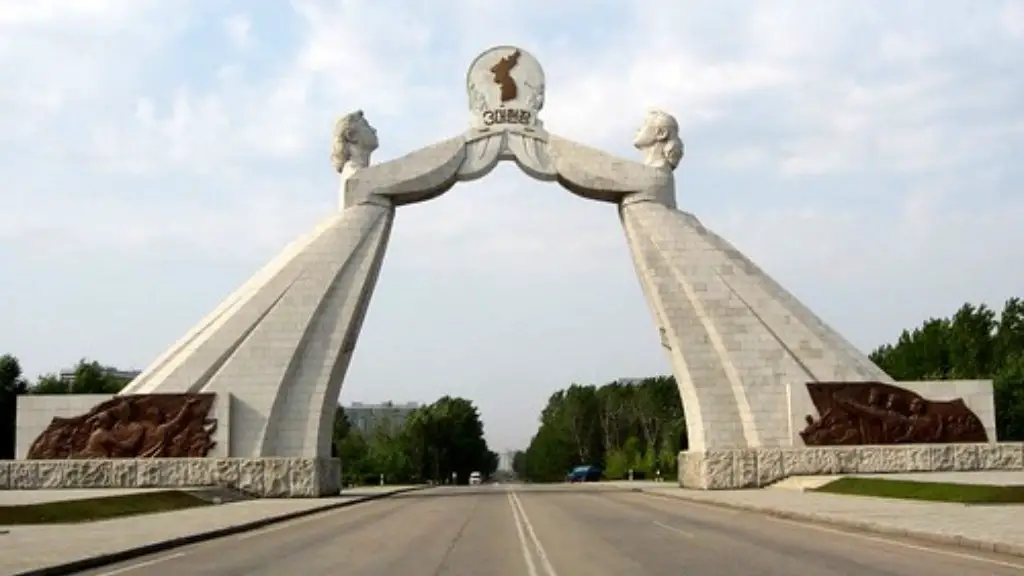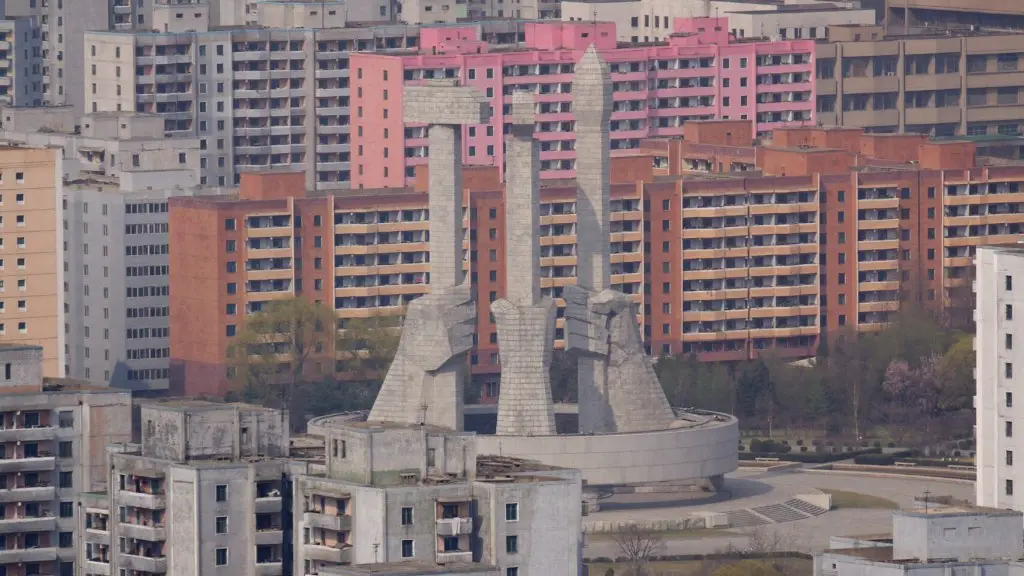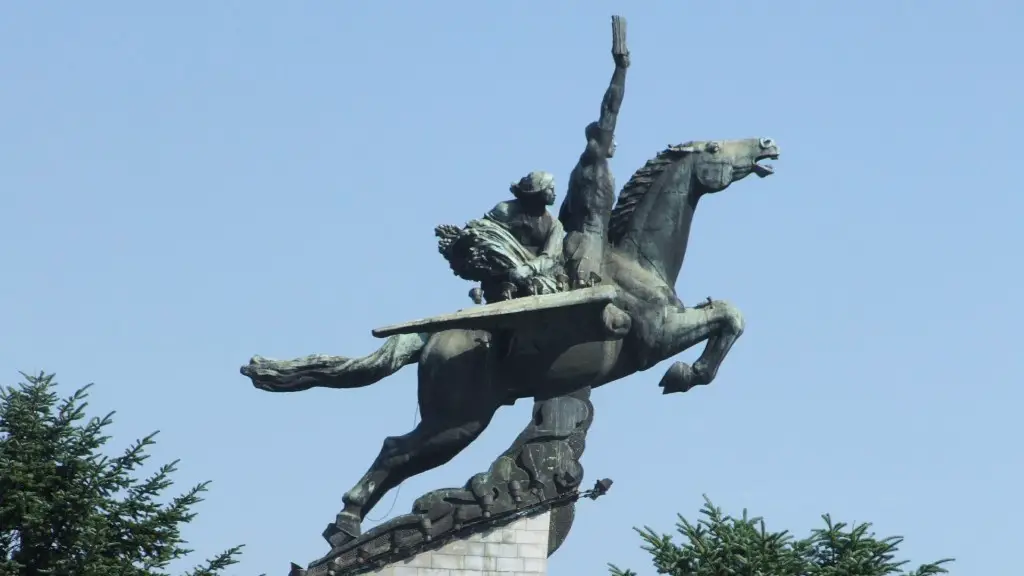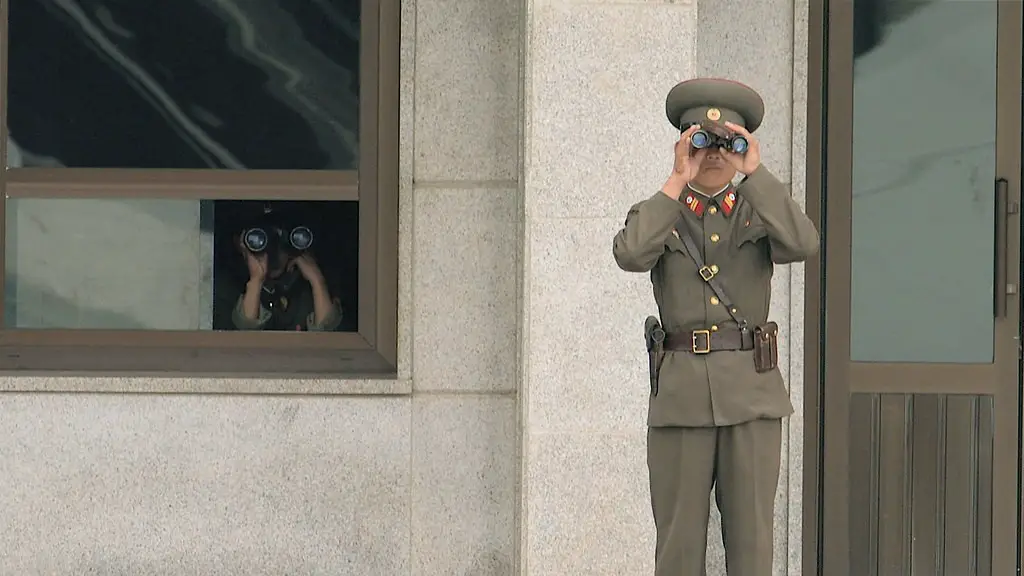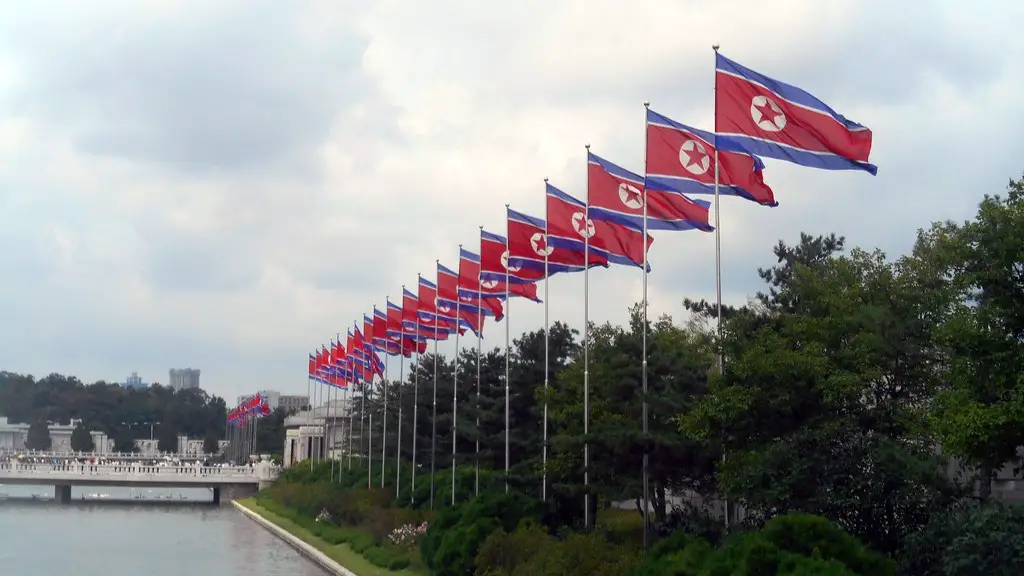Kim Il-sung
Kim Il-sung was the leader of North Korea after World War Two until his death in 1994. He was born on April 15, 1912 in Manchuria, which was then a part of the Japanese Empire. Kim Il-sung developed a strong nationalistic sentiment early on, and as a young man joined the Korean liberation movement, working to establish a communist government in Korea.
Kim Il-sung had close ties with the Soviet Union, and was supported by the Kremlin in the formation of the Democratic People’s Republic of Korea, the first communist government in Korea. This government was established on September 9, 1948, and Kim Il-sung was appointed as its leader. Kim Il-sung used his position to implement a range of social and economic reforms in North Korea, as well as engaging in a series of military conflicts with South Korea.
The Korean War, which lasted from 1950 to 1953, left a lasting impression on the peninsula. Although the exact number of casualties from the war is still in dispute, at least one million civilians and soldiers perished. However, the war also served to solidify Kim Il-sung’s status as a leader and national hero in North Korea.
Kim Il-sung was a powerful and charismatic leader who was highly revered in North Korea. He introduced policies of juche, or self-reliance, and promoted the cult of personality around himself. He led the country into socialism and actively pursued a foreign policy of non-alignment and peaceful co-existence, which sought to maintain a degree of independence from both the United States and China.
Kim Il-sung also pursued economic reforms in the country, including launching large infrastructure projects and investing in heavy industry. His economic reforms were initially successful, but by the late 1980s, the economy was beginning to stagnate, and the country was facing increasing economic hardship.
In 1994, Kim Il-sung died at the age of 82, leaving his son Kim Jong-il in power. Kim Jong-il continued his father’s policies, but struggled to address the economic issues facing the country. He maintained a hardline stance against the United States and enhanced the country’s nuclear capabilities.
Kim Jong-il’s Leadership
Kim Jong-il led North Korea for 17 years until his death in 2011. He was the son of Kim Il-sung, and had been groomed as the leader of North Korea since the 1970s. Upon his father’s death in 1994, Kim Jong-il assumed control of the country, and immediately set out to consolidate his power.
Kim Jong-il was a ruthless leader who used a range of tactics to maintain control over his people, including a tight grip on the media, secret police and labor camps. During his tenure, the economy of North Korea faded even further, with millions of people facing hunger and poverty.
Kim Jong-il also maintained a harsh policy of isolationism, refusing to enter talks with the outside world. He also developed an advanced nuclear weapons program, conducting several tests as part of his ambition for North Korea to develop an atomic bomb.
Kim Jong-il’s leadership was also marred by widespread human rights abuses. The country was consistently ranked as one of the worst violators of human rights by international organizations, and was roundly condemned by the international community.
Kim Jong-il’s rule ended with his death in 2011. He was succeeded by his son Kim Jong-un, who continues to lead the country today.
Kim Jong-un’s Leadership
Kim Jong-un was just 27 years old when he succeeded his father Kim Jong-il as the leader of North Korea in 2011. At the time, he was the youngest head of state in the world, and his leadership marked a stark contrast from his father’s.
Unlike his father, Kim Jong-un has adopted a more open and conciliatory tone when dealing with the international community. He has sought to improve relations with the US and China, and has engaged in summits with world leaders such as Donald Trump and South Korea’s Moon Jae-in.
Kim Jong-un has also implemented a series of economic reforms, which have sought to modernize the North Korean economy and promote economic growth. This has been coupled with increased restrictions on civil liberties, with dissenters and political opponents being subject to harsh punishments.
Kim Jong-un remains highly revered in North Korea, and continues to maintain the cult of personality that was established by his father and grandfather.
Kim Jong-un has also used his leadership to advance the nation’s nuclear capabilities, with the country now possessing a sophisticated nuclear arsenal. While the US and North Korea have sought to improve relations, tensions remain, with the two sides still far apart in their respective agendas.
Impact of North Korean Leaders
The leaders of North Korea have had a powerful and lasting impact on the nation. Kim Il-sung, Kim Jong-il and Kim Jong-un have all used their leadership to pursue their own unique agendas, which have all had an immense impact on North Korea.
Kim Il-sung established the first communist government in North Korea, while also leading the nation through the Korean War and launching a series of social and economic reforms. Kim Jong-il continued his father’s policies while also engaging in internationally condemned human rights abuses, and accelerating the development of North Korea’s nuclear capabilities.
Kim Jong-un has taken a more open and conciliatory approach to world leaders, and has sought to implement economic reforms in the country. He has also continued his predecessors’ pursuit of a powerful nuclear arsenal, with North Korea now possessing a sophisticated and powerful nuclear deterrent.
International Diplomacy
The actions of North Korean leaders have had major implications for international diplomacy. Kim Il-sung and Kim Jong-il were both regarded as hardline and intransigent leaders, and their often confrontational stance towards the countries of the West led to an increasingly hostile relationship.
Kim Jong-un’s approach has been much more open and conciliatory, and he has met with a range of world leaders, including US President Donald Trump. These meetings have sought to ease tensions between North Korea and the international community, and have also ended in the signing of agreements such as the Singapore Declaration.
In recent years, North Korea has sought to reduce its reliance on the West, and has instead sought to improve its diplomatic ties in the region. Kim Jong-un has met with South Korean president Moon Jae-in on several occasions, and the two have signed agreements aimed at fostering closer ties between the two Koreas.
North Korea has also sought to improve its relationship with China, signing a historic agreement in 2018 which saw both countries declare an end to their hostility and pledge to work together to resolve the issues of denuclearization and economic integration.
Economy
The economy of North Korea continues to suffer from years of mismanagement and the legacy of its isolationist policies. The country remains heavily reliant on foreign aid, and economic growth has been slow. The recent economic reforms implemented by Kim Jong-un have had limited success, and much of the country’s population remains entrenched in poverty.
In recent years, North Korea has sought to develop its tourism industry. This has led to an explosion in the number of foreign visitors to the country, with tourists drawn to its unique culture and attractions. However, tourism in North Korea remains largely regulated, and westerners are still subject to strict rules and restrictions.
North Korea has also increasingly sought to capitalize on its natural resources, particularly its mineral wealth. Foreign investment has been sought in these areas, and is a key part of the government’s economic strategy.
The economy of North Korea is likely to remain heavily reliant on foreign aid and investment in the short to medium-term, and the nation’s economic prospects remain uncertain. The actions of the international community, and the leadership of Kim Jong-un, will be key in determining the nation’s future economic performance.
Conclusion/ Summary
Since the end of World War Two, North Korea has been led by a series of strong and divisive leaders. Kim Il-sung, Kim Jong-il and Kim Jong-un have all had a dramatic impact on the country, and their policies and actions have had a lasting effect on the nation.
Kim Jong-un has sought to improve the country’s relationship with the international community, and has taken a more open and conciliatory stance than his predecessors. He has also sought to shore up the nation’s economy, whilst also maintaining a powerful nuclear capability.
The actions of North Korea’s leaders have had major implications for international diplomacy, and the leaders of the country will continue to play a vital role in the future of the nation. North Korea’s economic prospects remain uncertain, and the future of the country hangs in the balance.
